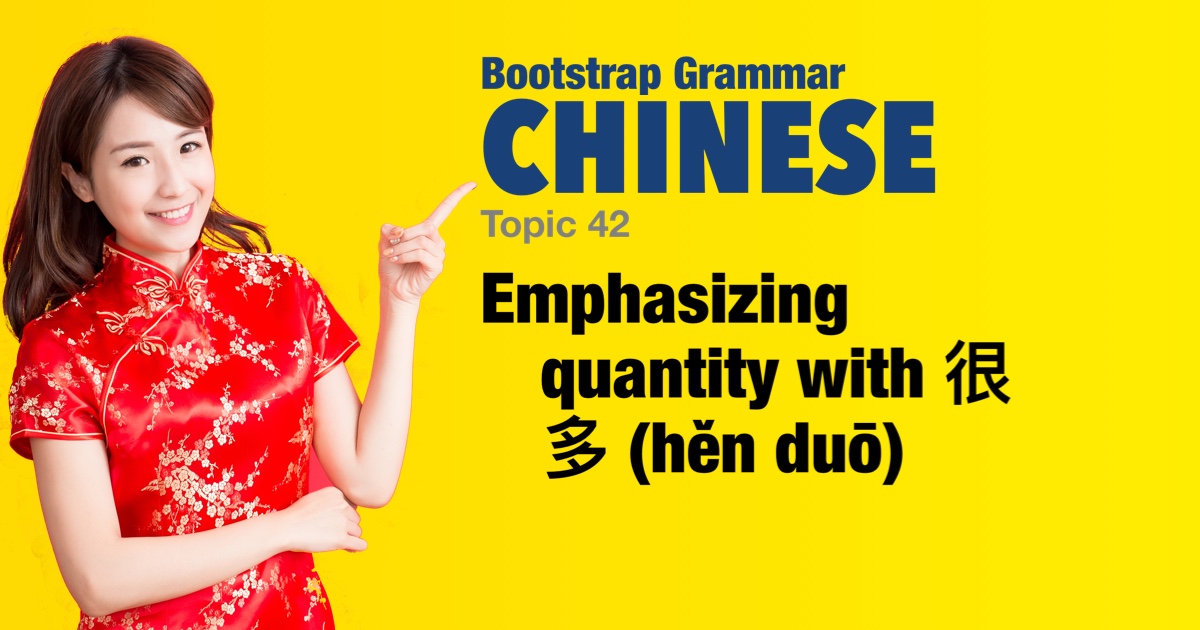Chinese grammar - Emphasizing quantity with 很多 (hěn duō) |
|||
|
|||
The qualifier 很多 (hěn duō), means 'a lot of' or 'many'. It can be used with both countable and uncountable nouns |
| Examples: | |
|
你有很多钱吗?
nǐ yǒu hěnduō qián ma? Do you have a lot of money? |
|
|
他喝很多水。
tā hē hěnduō shuǐ. He drinks a lot of water. |
|
|
他们需要很多时间。
tāmen xūyào hěnduō shíjiān. They need a lot of time.
|
|
|
这里有很多信息。
zhèlǐ yǒu hěnduō xìnxī. There is a lot of information here.
|
|
|
你买很多书吗?
nǐ mǎi hěnduō shū ma? Do you buy a lot of books? |
|
|
他认识很多人。
tā rènshí hěnduō rén. He knows a lot of people. |
|
|
我们有很多问题。
wǒmen yǒu hěnduō wèntí. We have a lot of questions. |
|
|
这城市有很多公园吗?
zhè chéngshì yǒu hěnduō gōngyuán ma? Does this city have a lot of parks? |
|
|
他给我很多帮助。
tā gěi wǒ hěnduō bāngzhù. He gives me a lot of help.
|
|
|
我们很多人都想喝咖啡。
wǒmen hěnduō rén dōu xiǎng hē kāfēi. A lot of us would like to drink coffee. |
|
|
很多人都是法国人。
hěnduō rén dōu shì fǎguó rén. A lot of people are French.
|
|
|
他们很多人都想学中文。
tāmen hěnduō rén dōu xiǎng xué zhōngwén. A lot of them would like to learn Chinese. |
|
|
很多苹果都不好。
hěnduō píngguǒ dōu bù hǎo. A lot of the apples are not good. |
|
|
很多问题都很重要。
hěnduō wèntí dōu hěn zhòngyào. A lot of the questions are important. |
|
|
很多老师都很年轻。
hěnduō lǎoshī dōu hěn niánqīng. A lot of the teachers are also young. |
|
 |
|



